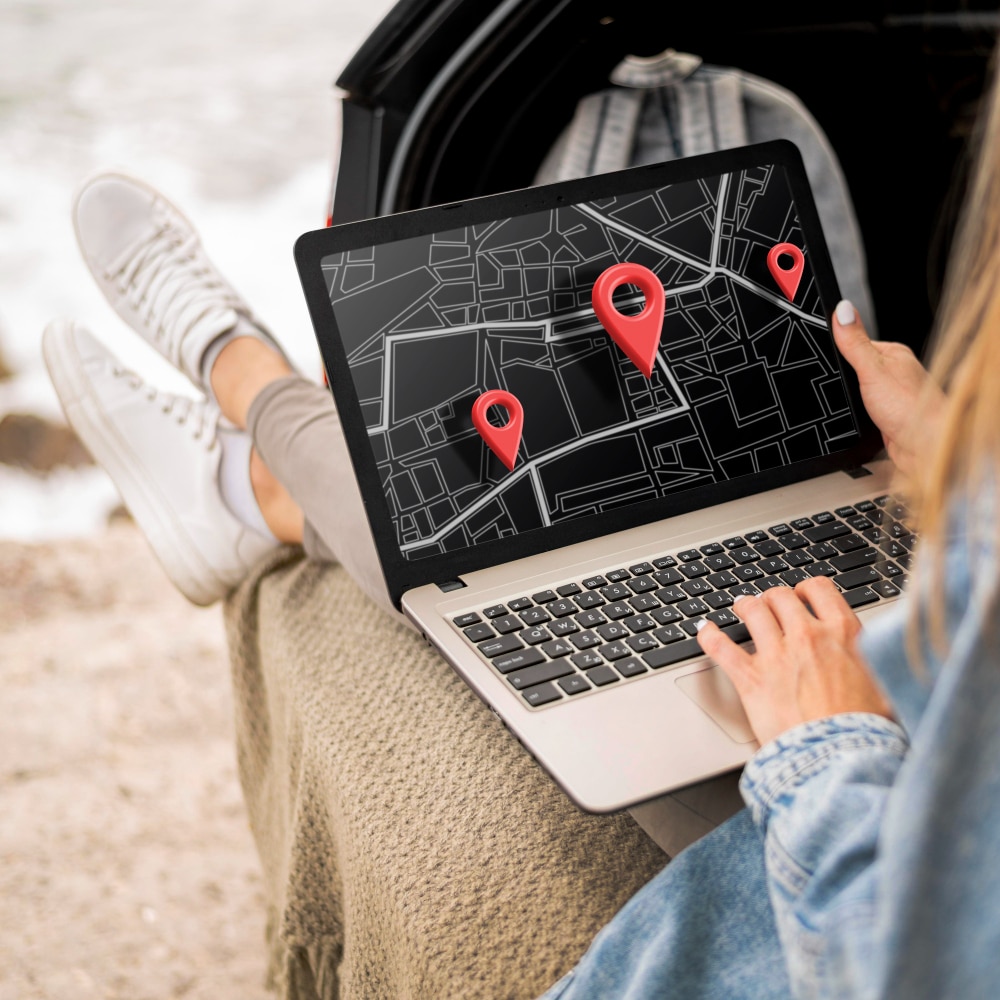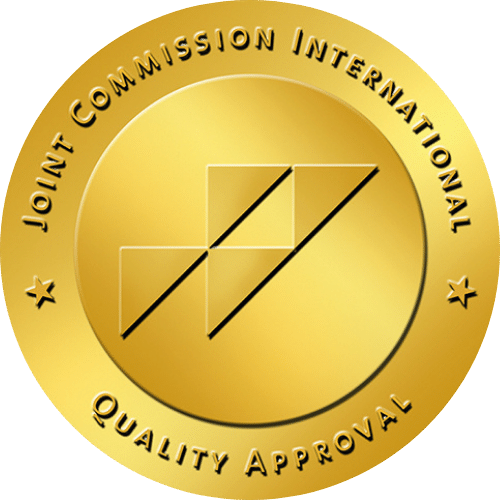4 min read
Nerve conduction testing near me (in Miami-Dade & Broward)

Have you ever felt tingling in your hands, weakness in your legs, or unexplained pain that just won’t go away? These might seem like small issues at first, but they could be signs of something deeper happening in your nervous system. And that’s exactly where a nerve conduction study near me can help.
If you’re searching for answers, you’re not alone — and you’re in the right place. In this guide, you’ll learn everything about nerve conduction testing near me (in Miami-Dade & Broward), including how it works, what to expect, and how to find trustworthy local care like Neurology Mobile, who brings advanced diagnostics right to your community.
What Is a Nerve Conduction Study (NCS)?
Purpose of Nerve Conduction Testing
Let’s start simple. Your nerves are like electrical wires. Every time you feel, move, or react, electrical signals are traveling through these “wires” to make that happen. But when a nerve is damaged, those signals slow down or don’t arrive at all — and that causes symptoms like numbness, weakness, or pain.
That’s where a nerve conduction study near me becomes incredibly useful.
A nerve conduction study (NCS) measures how fast and effectively electrical signals move through your nerves. It’s a crucial test to help neurologists detect issues such as:
- Pinched or compressed nerves
- Nerve damage from injury or illness
- Chronic conditions like diabetes-related neuropathy
How the Nervous System Is Evaluated
During nerve conduction testing near me, a trained specialist places surface electrodes (tiny sensors) on your skin near the nerves being tested. Then, small electrical impulses are sent through your nerves. The equipment tracks how fast the signal travels and how strong the response is.
Think of it like checking the strength of a Wi-Fi connection — except it’s your nerves we’re testing.
What Is a NCV Tester and How Does It Work?
A NCV tester (short for nerve conduction velocity tester) is the device that runs this diagnostic test. It works by:
- Sending mild electrical pulses into a nerve
- Recording the nerve’s reaction and speed of response
- Measuring delays that may indicate damage or dysfunction
The NCV test is completely safe and can provide immediate insight into what’s going on in your body.
Common Conditions Diagnosed With NCV testing
You may be wondering: “Why would I need a nerve conduction study near me?” Here are a few real-life examples that might sound familiar.
Carpal Tunnel Syndrome
Do your fingers go numb when typing or holding a phone? This could be carpal tunnel syndrome, caused by pressure on the median nerve in your wrist. An NCS can confirm the diagnosis and help your doctor plan treatment.
Peripheral Neuropathy
If you have diabetes or a history of nerve problems, you may have felt burning or tingling in your feet or hands. That’s peripheral neuropathy — and a nerve conduction study is essential for detecting its severity.
Sciatic Nerve Injuries and Pinched Nerves
Pain shooting from your lower back down your leg? That’s often the sciatic nerve being compressed. With a nerve conduction test near me, you’ll get the clarity you need to decide between physical therapy, injections, or surgery.
What to Expect During the Test
Let’s walk through it so you know exactly what’s coming.
How Long Does an EMG NCV Test Take?
Most nerve conduction studies take 30 to 60 minutes. If your doctor also orders an EMG (electromyography), which looks at muscle activity, the session may run a bit longer. It’s still an outpatient procedure — you’ll go home the same day.
⏱️ Pro tip: Schedule the test for a time when you don’t have to rush afterward. You’ll want a few minutes to relax.
Will the NCS Test Hurt or Cause Discomfort?
We get it — electric pulses sound a little scary. But don’t worry.
Patients usually describe the feeling as mild tingling or a quick zap, similar to static electricity. It’s not painful, and each pulse lasts just a second or two.
There may be some minor discomfort, but nothing you can’t handle. You won’t need any anesthesia or downtime.
What Happens After the Test?
Your neurologist will review the results, looking at the speed and strength of nerve signals. Based on the findings, you’ll receive a treatment plan that may include:
- Physical or occupational therapy
- Medication to reduce nerve pain
- Nutritional adjustments
- Lifestyle tips to protect your nerves
And the best part? Many patients feel empowered just by understanding what’s going on in their bodies.
Finding Nerve Conduction Testing Near You
You’re probably searching for nerve conduction study near me because you’re looking for fast, expert care without having to travel far. Here’s how to find the right provider.
What to Look for in a Diagnostic Clinic
Not all clinics offer the same level of care. Here’s what you should look for:
| Feature | Why It Matters |
| Board-certified neurologists | Ensures proper diagnosis and interpretation |
| Modern NCV testing equipment | More accurate and faster results |
| Convenient scheduling | Flexibility that fits your busy life |
| Compassionate staff | Makes the experience easier and less stressful |
| In-home or mobile services | Reduces travel time and offers comfort in your own environment |
✅ Neurology Mobile checks all these boxes — and more.
Local Neurology Services You Can Trust
Neurology Mobile offers professional nerve conduction testing near me, right where you are. No waiting rooms. No long drives. Just advanced testing and real answers.
We specialize in helping patients across in Miami-Dade & Browardand beyond access:
- EMG and NCV tests done by trained neurologists
- Mobile diagnostic units that come to your home or clinic
- Rapid test result turnaround for faster treatment planning
You don’t have to travel far to find care. With Neurology Mobile, care comes to you.
Booking a Consultation Step-by-Step
Here’s how easy it is to get started:
- Go to NeurologyMobile.com
- Click “Book Now” or request an appointment
- Speak with a care coordinator to choose a convenient day and time
💡 The sooner you test, the sooner you get answers.
Comparative Table: Top Nerve Conduction Test Providers
Here’s a side-by-side look at options for nerve conduction study near me to help you make an informed choice:
| Provider | Mobile Services | In-Home Testing | EMG + NCV Available | Wait Time | Insurance Accepted | Unique Benefit |
| Neurology Mobile | ✅ Yes | ✅ Yes | ✅ Yes | Short | ✅ Yes | Comes directly to you — no travel! |
| Local Hospital Lab | ❌ No | ❌ No | ✅ Yes | Long | ✅ Yes | Trusted brand, but slower scheduling |
| Diagnostic Chain Center | ❌ No | ❌ No | ✅ Yes | Medium | ✅ Some | Nationwide access, but impersonal care |
When Will I Get My Test Results?
You can expect results within a few days. Neurology Mobile’s neurologists will walk you through the findings and next steps — clearly, compassionately, and without jargon.
Final Thoughts: Time to Listen to Your Body
Your body is always speaking — through tingling, pain, numbness, or weakness. If you’re reading this, it means you’re ready to listen. That’s a powerful step.
👉 Whether you’re curious, concerned, or already referred for a nerve conduction study near me, take action today with Neurology Mobile. We bring trusted care to your door, so you can focus on healing.
✨ Because your health matters. Your comfort matters. And getting the answers you deserve should never be complicated.
Book your nerve conduction testing now at NeurologyMobile.com — we’re ready when you are.
Frequently Asked Questions About Nerve Conduction Studies
1. How do I know if I need a nerve conduction study?
If you’re experiencing numbness, tingling, muscle weakness, or unexplained pain — especially in your hands, arms, legs, or feet — your doctor may recommend a nerve conduction study. This test helps identify if a nerve is damaged, compressed, or functioning abnormally. It’s often ordered when conditions like carpal tunnel syndrome, sciatica, or peripheral neuropathy are suspected. If these symptoms sound familiar, it’s worth speaking with a neurologist about whether NCS is right for you.
2. What’s the difference between nerve conduction testing and an EMG?
Both tests are often performed together, but they focus on different systems. A nerve conduction study (NCS) measures how well and how fast electrical signals move through your nerves, while an electromyography (EMG) evaluates how your muscles respond to those nerve signals. Together, they give your doctor a complete picture of your nerve and muscle health. If you’re looking for nerve conduction testing near me, many clinics — like Neurology Mobile — offer both tests during the same visit.
3. Is nerve conduction testing covered by insurance?
Yes, in most cases, nerve conduction studies are covered by health insurance if they’re deemed medically necessary. However, coverage can vary depending on your provider, policy details, and whether the test is performed in-network. Clinics like Neurology Mobile work directly with many major insurance carriers and can help verify your benefits in advance to avoid unexpected costs.
4. Can I drive after a nerve conduction study?
Absolutely. Since a nerve conduction study is a non-invasive outpatient test that doesn’t require anesthesia or sedation, you’ll be able to drive yourself home right after the procedure. You might feel a little muscle fatigue or mild irritation at the electrode sites, but these effects are temporary and don’t interfere with daily activities.
5. Where can I find reliable nerve conduction testing near me?
For trusted and convenient testing, Neurology Mobile offers professional nerve conduction testing near you — right in your own community. With board-certified neurologists and mobile services that come to your location, you don’t have to travel far to get the answers you need. Booking is simple through their website: NeurologyMobile.com.
